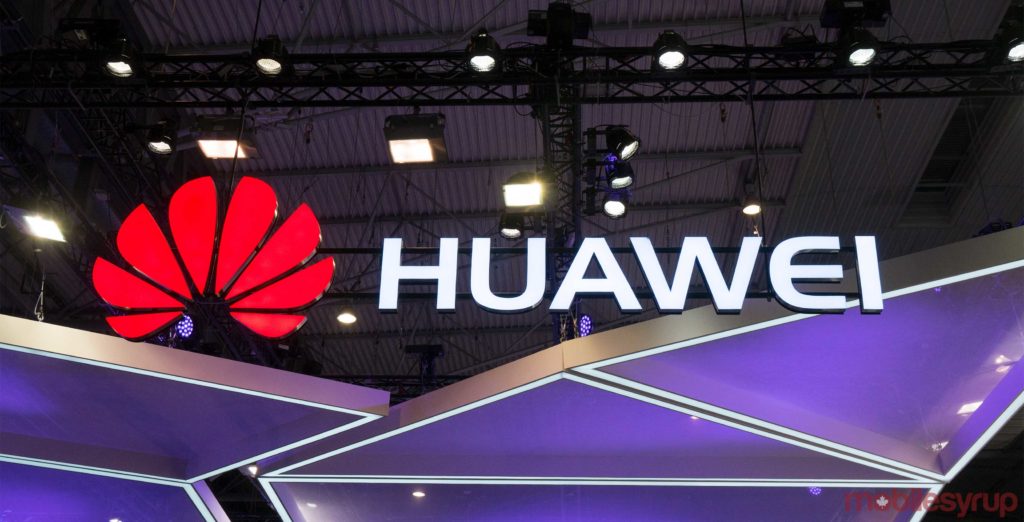
A snowball effect of events, reactions and warnings happened over the weekend following the arrest and call for extradition of Meng Wanzhou, Huawei’s global chief financial officer, on December 5th, 2018.
The publication ban, which was requested by Meng at the time of her arrest, was lifted before the B.C. bail hearing on December 7th, 2018, during which it was confirmed the request to extradite the senior Huawei executive to be tried in the U.S. was for fraud offences.
Meng is the daughter of Huawei’s founder and was detained during a layover at the Vancouver airport.
John Gibb-Carsley, the lawyer for the attorney general, said during the hearing that U.S. banks were concerned about the relationship between Huawei and its subsidiary SkyCom. Gibb-Carsley noted that the unofficial subsidiary helped with transactions to Iran, saying it’s against sanctions and is considered fraud.
“These are organizations, ultimately tightly tied to the Chinese security apparatus, and we think there are some real, serious issues there.”
The court is expected to come to a decision regarding Meng’s bail, but in the meantime, former Prime Minister Stephen Harper said he supported the United States in lobbying allies in an effort to persuade them to ban the use of Huawei equipment in 5G networks.
5G is the next generation of mobile networks. Huawei has been operating in Canada since 2008 and has nearly 1,000 employees across the country.
In 2012, Harper’s Conservative government publicly sent a signal to Huawei stating that the company would not be allowed to bid on any federal government contracts. In September 2018, the Canadian Security Establishment confirmed it tests and evaluates “designated equipment and services considered for use on Canadian 3G and 4G/LTE networks, including Huawei.”
Harper told Fox News on December 6th, 2018 that he was concerned with the Shenzhen-based smartphone giant coming into Canada.
“These are organizations, ultimately tightly tied to the Chinese security apparatus, and we think there are some real, serious issues there,” said Harper during the interview. “The United States is encouraging Western allies to essentially push Huawei out of the emerging 5G network, and my personal view is that is something Western countries should be doing in terms of our own long-term security issues.”
Right now Canada is one of two countries from the Five Eyes intelligence-sharing alliance that is still in partnership with Huawei. The United Kingdom is also in partnership with Huawei, while the other countries have banned the use of Huawei.
The Five Eyes are a group of countries that share information and intelligence with regards to tourism, security and espionage. It consists of the United States, United Kingdom, Canada, Australia and New Zealand.
According to a draft of China’s national intelligence law that was recently quietly released, all Chinese companies “shall support, cooperate with and collaborate in national intelligence work, and maintain the secrecy of national intelligence work they are aware of.”
On December 7th, 2018, Prime Minister Justin Trudeau said he was aware of the arrest before it was going to happen and said to reporters that “appropriate decisions were taken by the appropriate authorities.”
Foreign Affairs Minister Chrystia Freeland told reporters, before the publication ban was lifted, that she had not spoken to Chinese officials and added that Canada’s ambassador in Beijing has provided consular access.
Huawei maintained its stance that it “complies with all applicable laws and regulations where it operates, including applicable export control and sanction laws and regulations of the U.N., U.S., and E.U.”
Huawei Canada’s vice-president Scott Bradley has also noted to MobileSyrup that the company “will continue to work collaboratively with the Canadian government, carriers and other domestic stakeholders to take whatever steps are needed to ensure and protect the integrity of Canada’s national telecommunications infrastructure.”
CSIS cautions universities working with Huawei
Huawei is currently working with 13 universities across Canada and plans on investing $37 million CAD into research partnerships.
Despite reassurances, the Globe and Mail reported on December 9th, 2018 that Canada’s spy agency, the Canadian Security Intelligence Service (CSIS), is warning universities to be careful with their relationship to Huawei.
The article indicated that officials, including assistant director of intelligence Michael Peirce, gave a warning at a meeting on October 4th, 2018, and that there was going to be one more follow-up meeting planned with 20 McGill University academics on December 19th, 2019.
“The essence of [CSIS’ message] was, ‘We have concerns,’” about Canadian universities’ research partnerships with Huawei,” said Martha Crago, McGill’s vice-principal, research and innovation, who chaired the meeting, in an interview with the Globe and Mail. “’We have security concerns and we need you to recognize this is dual-use technology. It could have security implications as well as commercial applications.’”
B.C. trade mission stopped after arrest
Not only was news revealed that universities were getting warned, but Canada’s trade relationship with China also began to experience repercussions.
The CBC reported on December 9th, 2018 that B.C.’s minister of jobs, trade and technology, Bruce Ralston, has rescheduled a trip to China to talk about the province’s Forestry Asia Trade Mission.
The talks were supposed to have taken place after discussions with Japan finished on December 11th, but Ralston said in a statement that “due to the international judicial process underway” the trip was being postponed at the next most convenient date.
Source: The Globe and Mail, CBC
MobileSyrup may earn a commission from purchases made via our links, which helps fund the journalism we provide free on our website. These links do not influence our editorial content. Support us here.


